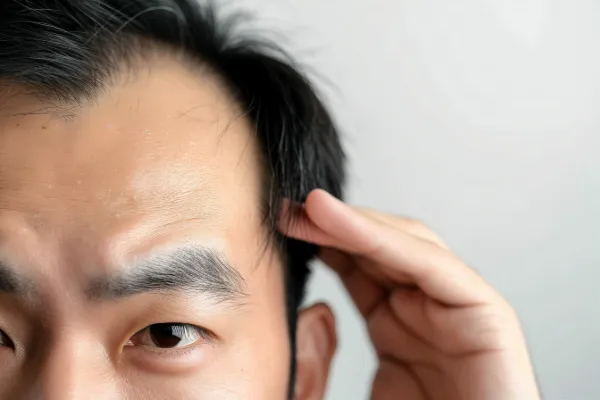この記事の概要
Thinning hair and alopecia can have a significant impact not only on appearance, but also on mental health. Recent studies have shown that hair transplant surgery may reduce the emotional burden caused by thinning hair and contribute to improved mental health. This article details the impact of hair transplant surgery on mental health from the perspective of hair transplantation and neuroscience.
How hair loss impacts mental health
1. Low self-esteem
Thinning hair can have a huge impact on your self-evaluation and self-esteem.
Low self-esteem: Thinning hair can lower your self-esteem and make you feel less confident in yourself.
Social anxiety: You may feel more anxious about your appearance, which can make social situations more stressful.
2. Stress and anxiety
Anxiety and stress about hair loss can have a negative impact on your mental health.
Chronic stress: Worrying about thinning hair can lead to chronic stress and mental exhaustion.
Risk of anxiety disorders: Increased anxiety about hair loss may increase your risk of anxiety disorders.
3. Depression
Having trouble with thinning hair can lead to depression.
Feelings of self-doubt: Feelings of self-doubt due to thinning hair can increase feelings of depression.
Social isolation: Concerns about appearance can lead people to avoid social activities, which can increase feelings of isolation.
The impact of hair transplant surgery on mental health
1. Improved self-evaluation
Hair transplant surgery improves your appearance, which leads to improved self-esteem.
Restoring self-confidence: Having more hair can restore your confidence and improve your self-esteem.
Positive self-image: You will feel less dissatisfied every time you look in the mirror and develop a more positive self-image.
2. Reduce stress and anxiety
Hair transplant surgery reduces anxiety about appearance and lowers stress levels.
Reduced chronic stress: Chronic stress caused by thinning hair is reduced, leading to increased mental stability.
Reduces social anxiety: Reducing anxiety about appearance can lead to increased confidence and reduced anxiety in social situations.
3. Improves depression
Hair transplant surgery may also help alleviate depression.
Increased self-esteem: Improving your appearance can boost your self-esteem and reduce feelings of depression.
Increased social activity: Feeling more confident can make you more socially active and reduce feelings of isolation.
The Effects of Hair Transplant Surgery from a Neuroscience Perspective
1. Increased dopamine
Improving your appearance stimulates the secretion of dopamine, which makes you feel pleasure and joy.
Increased self-esteem: Increased hair can increase your self-esteem, which in turn stimulates the release of dopamine in the brain.
Increased positive emotions: Increased dopamine leads to increased positive emotions and improved mental health.
2. Serotonin regulation
The improved appearance achieved through hair transplant surgery regulates the secretion of serotonin, providing mental stability.
Reduces stress: Promoting the release of serotonin reduces stress and increases feelings of relaxation.
Mood Stability: Balancing serotonin can improve mood stability and reduce depression.
3. Norepinephrine balance
Improving your appearance helps balance norepinephrine and reduce your stress response.
Suppresses stress response: By regulating the secretion of norepinephrine, stress response is suppressed and mental stability is increased.
Improved Mental Focus: Balancing norepinephrine improves focus and mental health.

Measures to support mental health
1. Appropriate counseling
It is important to receive mental health counseling when considering hair transplant surgery.
Expert support: Get support from counsellors and psychologists to manage your mental health before and after your surgery.
Psychological preparation: Understanding the effects and expectations of the surgery and having realistic expectations will reduce the psychological burden.
2. Stress management
Maintain your mental health by taking steps to manage stress.
Relaxation: Implement relaxation techniques such as meditation, yoga, and deep breathing to reduce stress.
Hobbies and activities: Finding a hobby or something you enjoy can help increase your positive emotions and maintain your mental well-being.
3. Healthy lifestyle habits
Maintaining a healthy lifestyle can support your mental health.
Balanced diet: Eat a balanced diet to keep your body and mind healthy.
Exercise: Exercise regularly to stay fit and reduce stress.
Summary
Hair transplant surgery is expected to reduce the mental burden of hair loss and contribute to improving mental health. From a neuroscience perspective, it has been shown that improving appearance affects neurotransmitters in the brain, resulting in positive emotions and mental stability. Proper counseling, stress management, and maintaining a healthy lifestyle can help you maximize the benefits of hair transplant surgery and support your mental health.








